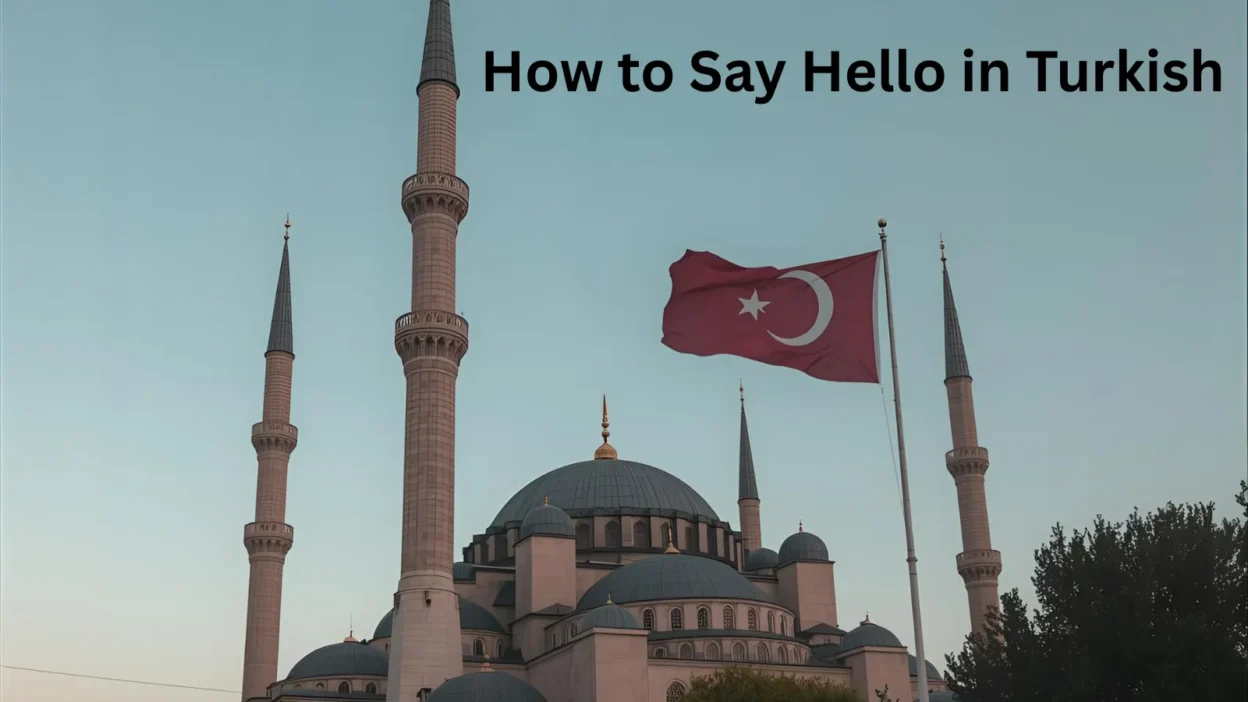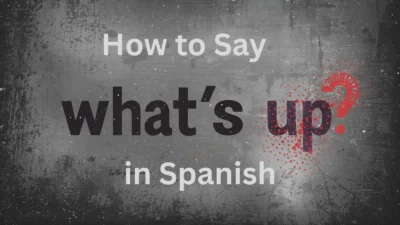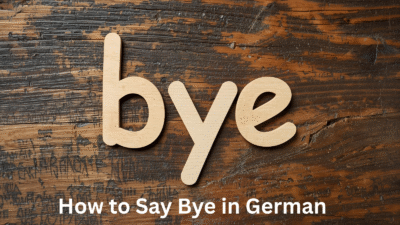How to Say Hello in Turkish is one of the first steps to connecting with Turkish speakers and their warm culture. Greetings in Turkish carry both friendliness and respect, making them essential in daily conversations.
By learning the right words and expressions, you’ll sound more natural and confident when meeting people in Turkey or Turkish communities worldwide. The most common greeting is Merhaba, which works in almost all situations. Mastering this simple word opens the door to smoother and friendlier interactions.
Say Hello in Turkish
15 Ways to Say Hello in Turkish
| No. | Turkish Phrase | Pronunciation | Meaning / Usage |
|---|---|---|---|
| 1 | Merhaba | MEHR-hah-bah | Standard hello, all-purpose greeting |
| 2 | Selam | SEH-lahm | Casual hi, informal |
| 3 | Günaydın | goo-NAHY-duhn | Good morning |
| 4 | İyi günler | EE-yee GOON-lehr | Good day |
| 5 | Tünaydın | too-NAHY-duhn | Good afternoon |
| 6 | İyi akşamlar | EE-yee ahk-SHAHM-lahr | Good evening |
| 7 | İyi geceler | EE-yee GEH-jeh-lehr | Good night (as greeting or farewell) |
| 8 | Selamün aleyküm | seh-lah-MOON ah-LEH-kyoom | Peace be upon you (religious/ formal) |
| 9 | Aleyküm selam | ah-LEH-kyoom seh-LAHM | Response to Selamün aleyküm |
| 10 | Naber? | NAH-behr | What’s up? (informal) |
| 11 | Hoş geldin | HOSH GEL-deen | Welcome (to one person) |
| 12 | Hoş geldiniz | HOSH GEL-dee-neez | Welcome (formal or plural) |
| 13 | Hoş bulduk | HOSH BOOL-dook | Polite reply to “hoş geldin/iz” |
| 14 | Selam dostum | SEH-lahm DOS-toom | Hello my friend (friendly) |
| 15 | Merhabalar | MEHR-hah-bah-lahr | Extended form of hello, polite and warm |
Let’s explore 15 ways to say hello in Turkish, each with sample conversations and background on usage or origin.
1. Merhaba (Hello)

Origin:
Derived from Arabic “marḥabā,” meaning “welcome” or “I am at ease.” It’s the most common and neutral Turkish greeting.
Example:
👤 User A: Merhaba, Ayşe. Nasılsın?
👤 User B: Merhaba! İyiyim, sen nasılsın?
Use: Universal—works in both formal and informal settings.
2. Selam (Hi)
Origin:
Also borrowed from Arabic “Salām” (peace), it’s a casual greeting used among friends.
Example:
👤 User A: Selam, Ali! Ne haber?
👤 User B: Selam! İyiyim, sen?
Use: Informal; commonly used in texts and daily conversation.
3. Günaydın (Good morning)

Origin:
Composed of “gün” (day) and “aydın” (bright). Literally means “may your day be bright.”
Example:
👤 User A: Günaydın, öğretmenim.
👤 User B: Günaydın, Ahmet. Hazır mısın derse?
Use: Formal or polite morning greeting.
4. Tünaydın (Good afternoon)
Origin:
Less commonly used. A blend of “tün” (night) and “aydın” (bright), meant for midday to late afternoon.
Example:
👤 User A: Tünaydın, Meltem Hanım.
👤 User B: Tünaydın! Ne güzel sürpriz bu?
Use: Polite; slightly formal but rarely used in daily speech.
5. İyi akşamlar (Good evening)
Origin:
Literally means “good evenings.” Used to greet or say goodbye in the evening.
Example:
👤 User A: İyi akşamlar, komşu!
👤 User B: Size de iyi akşamlar!
Use: Formal or polite in the evening.
6. İyi geceler (Good night)

Origin:
Means “good nights.” Often used before going to bed or when leaving late at night.
Example:
👤 User A: İyi geceler, anne.
👤 User B: Sana da iyi geceler, oğlum.
Use: Polite; parting words at night.
7. Naber? (What’s up?)
Origin:
Short for “Ne haber?” meaning “What’s the news?”—a common slang greeting.
Example:
👤 User A: Naber kanka?
👤 User B: İyilik, senden naber?
Use: Very informal; mostly between close friends.
8. Ne var ne yok? (What’s going on?)
Origin:
Colloquial Turkish that literally translates to “What is there, what is not?”
Example:
👤 User A: Ne var ne yok abi?
👤 User B: Her şey yolunda, sen nasılsın?
Use: Casual, often used by men or among peers.
9. Selamün aleyküm (Peace be upon you)

Origin:
Religious Islamic greeting from Arabic; traditional and respectful.
Example:
👤 User A: Selamün aleyküm.
👤 User B: Aleyküm selam, hoş geldin.
Use: Formal and religious; used among conservative or older speakers.
10. Aleyküm selam (And peace be upon you)
Origin:
The standard reply to “Selamün aleyküm.”
Example:
👤 User A: Selamün aleyküm.
👤 User B: Aleyküm selam.
Use: Always as a reply; respectful and traditional.
11. Hey!
Origin:
Adopted from English, especially among young people and online conversations.
Example:
👤 User A: Hey! Nasılsın bugün?
👤 User B: Hey! Süperim, sen?
Use: Casual; urban or youth-oriented speech.
12. Efendim? (Yes? / Hello?)
Origin:
Literally means “My master?”—used politely when answering a phone or being called.
Example:
👤 User A: (on phone) Efendim?
👤 User B: Merhaba, kargo şirketinden arıyorum.
Use: Polite, especially in phone calls or service roles.
13. Buyurun (Here you go / Yes, please?)
Origin:
A courteous expression used when answering doors or phones, or offering help.
Example:
👤 User A: Buyurun?
👤 User B: Merhaba, apartman yöneticisiyim.
Use: Formal and respectful; often used in customer service or public settings.
14. Canım! (My dear!)

Origin:
Means “my soul” or “my dear.” A term of endearment turned into a warm greeting.
Example:
👤 User A: Canım! Nasılsın?
👤 User B: Ayy canım! Seni çok özledim.
Use: Informal and affectionate; used mostly between close friends or loved ones.
15. Oo hoş geldin! (Oh, welcome!)
Origin:
“Hoş geldin” means “Welcome” and is a friendly way to greet someone who’s just arrived.
Example:
👤 User A: Oo hoş geldin, ne zamandır yoktun!
👤 User B: Hoş buldum! Gerçekten uzun zaman oldu.
Use: Warm and informal; used to express joy at someone’s arrival.
FAQs
1. What is the most common way to say Hello in Turkish?
The most common greeting is “Merhaba” (pronounced: mehr-hah-bah).
2. Can “Merhaba” be used in all situations?
Yes, Merhaba is universal—you can use it with friends, strangers, or elders.
3. How do you say Hello in a formal setting in Turkish?
You can say “Selamün aleyküm”, often used politely in traditional or respectful settings.
4. What is the casual way to say Hello in Turkish?
A casual and friendly way is “Selam” (like saying “Hey”).
5. How do you greet someone in the morning in Turkish?
Say “Günaydın” which means Good Morning.
6. How do you say Hello on the phone in Turkish?
On the phone, people say “Alo” (similar to “Hello” in English phone calls).
7. How do you reply to “Merhaba”?
Just reply “Merhaba” back with a smile 😊.
8. Is Turkish greeting different for elders?
Yes, use a warm tone and sometimes add “efendim” (sir/ma’am) to show respect.
9. How do you greet someone in the evening in Turkish?
Use “İyi akşamlar” which means Good evening.
10. Can I use emojis with Turkish greetings in texting?
Yes! You can text “Merhaba 😊”—it is friendly and natural.
Conclusion:
Learning how to say hello in Turkish is more than just a phrase—it’s a key to building friendships and showing respect. Whether you use Merhaba in a casual setting or a formal greeting like Selamün aleyküm, these expressions help you sound polite and genuine in Turkish culture. By practicing different greetings, you’ll connect more easily with locals and leave a positive impression.

Sophia Mitchell is a passionate content writer known for creating clear, engaging, and informative articles.
She focuses on delivering well-structured content that is easy for readers to understand and trust.
Sophia Mitchell currently contributes quality writing to repliesnest.com, helping readers find accurate answers quickly.



